Professor Sunil Kumar Gupta Delivered Academic Lecture at Shandong Institute of Advanced Technology
On April 14, Professor Sunil Kumar Gupta, incoming Chair of the International Union of Pure and Applied Physics (IUPAP), Emeritus Professor at the Tata Institute of Fundamental Research in Mumbai, India, and Chief Scientist of the GRAPES-3 Cosmic Ray Experiment, visited the Shandong Institute of Advanced Technology (SDIAT) upon invitation and delivered an academic lecture titled "Probing interplanatary and atmospheric phenomena through cosmic rays and their benefits for the society". The lecture was hosted by Professor Weiwei Xu , Director of the Particle Physics Research Center.
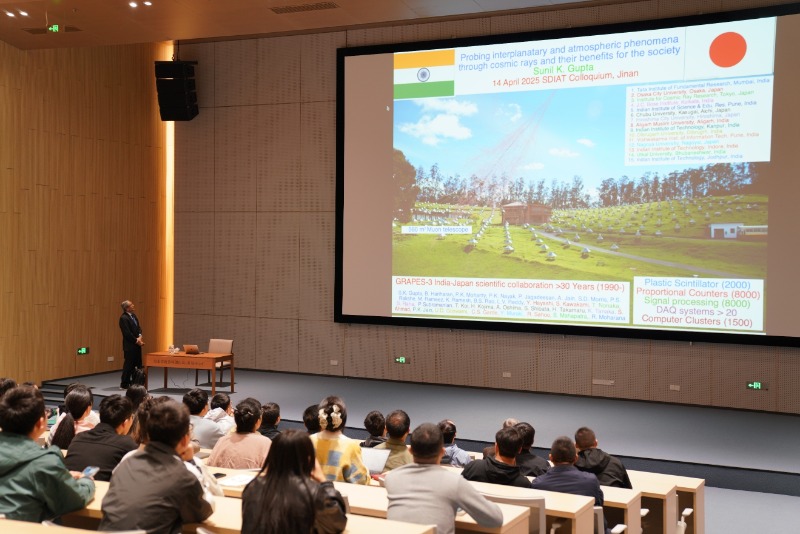
Professor Gupta introduced groundbreaking scientific discoveries from the GRAPES-3 experiment, the world’s largest ground-based muon telescope, spanning interdisciplinary fields such as astrophysics, solar-terrestrial physics, and atmospheric physics. By measuring cosmic ray muon flux variations with high precision, the GRAPES-3 experiment has revealed the potential effects of drastic interplanetary magnetic field changes on cosmic ray radiation. Additionally, GRAPES-3 observed thunderstorms with instantaneous voltage spikes reaching 1.3 billion volts and energy outputs of up to 2 billion watts through real-time muon flux fluctuations.
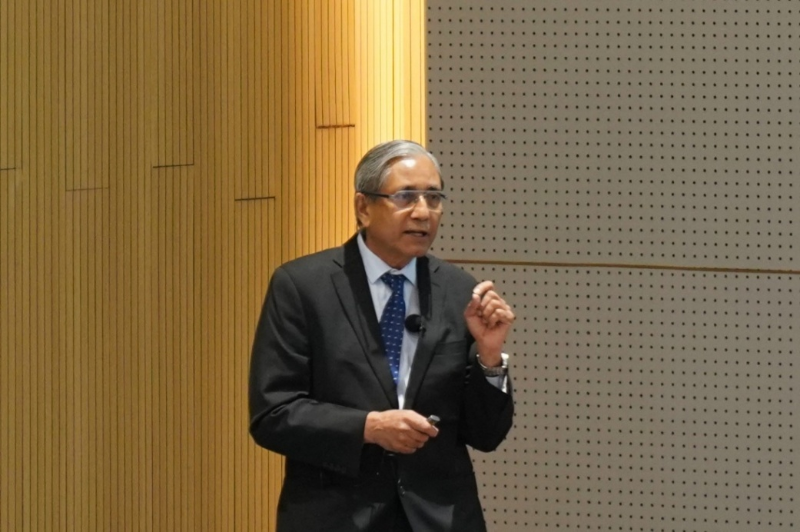
The lecture attracted nearly a hundred researchers and graduate students from SDIAT and other academic institutions. During the Q&A session, attendees engaged in in-depth discussions with Professor Gupta on topics such as cosmic ray detection technologies and future research directions, fostering a vibrant atmosphere of scholarly exchange.
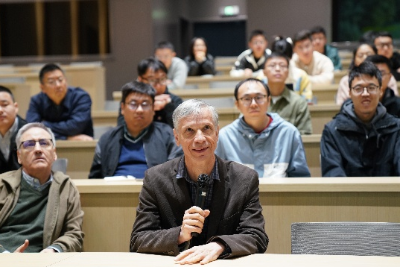
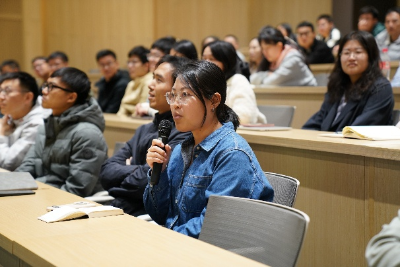
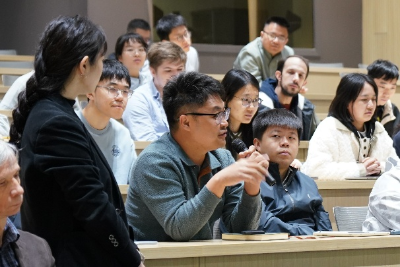
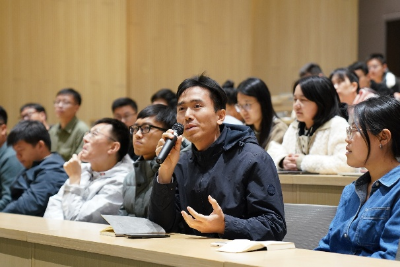
Following the lecture, Professor Gupta toured SDIAT’s facilities, including the library, laboratories, and AMS (Alpha Magnetic Spectrometer) Global Data Center, accompanied by Professor Weiwei Xu. He highly praised the SDIAT’s experimental infrastructure and research capabilities, and both sides explored potential collaborations for future projects.




